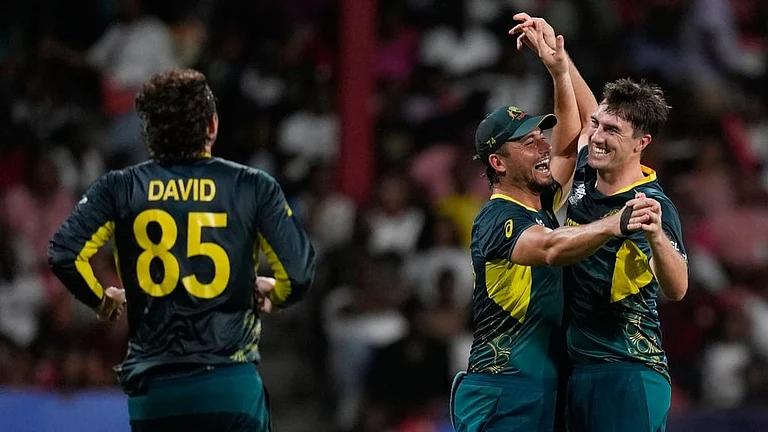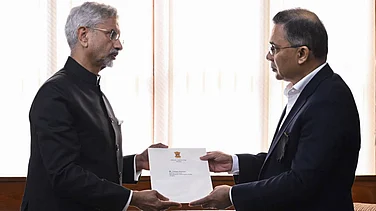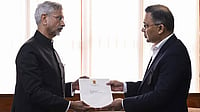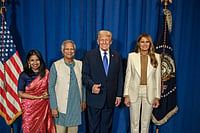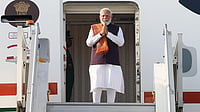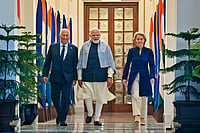India’s spy agency (Research and Analysis Wing) is once again in the eye of a storm. Earlier it was Canada and the US that had hurled grave accusations against India’s spy masters. This time the charges are from Australia. Unlike Ottawa or Washington, officially Canberra has not made any statement or accusation and senior Australian ministers have so far made no public comments. At his weekly briefing India’s foreign office spokesman Randhir Jaiswal refused to comment on "speculative media reports."
Spying on both friend and foe is a common practice the world over. International relations are complex and spying is not any new phenomena. It has gone on since nation states have existed. Every country does so. The US National Security Agency tapped Chancellor Angela Merkel’s phone calls and had spy devices placed in her office according to Wikileaks. US and Germany are NATO allies as well as G7 partners. What is surprising is the fact that RAW gets exposed. As analyst Derek J Grossman put out on X, "Indian RAW gets exposed again, this time in Australia. Maybe, just maybe, they are not very good at the spy game."
The Australia press reported on Tuesday that that two Indian spies were kicked out of the country in 2020. The identity of the country from where the spy ring operated was not disclosed when the incident was first reported. It is now, four years later, that the spies are identified as Indians. Earlier when there was talk of a "nest of spies" operating from Australia most believed that the reference was to either China or Russia. No one suspected India. The spies were accused of trying to steal information about "sensitive" defence and airport projects. RAW was also keeping an eye on the large Indian diaspora in Australia and tracking down those among India’s ex-patriate community that spoke against the government of India.
The news of what happened in 2020, was revealed in 2021 by the Australian Security Intelligence Organisation (ASIO). It has come at a time when security, defence and economic relations between India and Australia are on the upswing. India and Australia are also members of the quad, a grouping of India, US, Japan and Australia to guard the waters of the Indo-Pacific against a assertive China.
Keeping this in mind perhaps, Australian ministers have refused to comment on the stories that made front page news in leading newspapers like the Sydney Morning Herald and the Australian, as well as television channels like the ABC (Australia).
Last year, Canada’s Prime Minister Justin Trudeau had told Parliament that Ottawa had "credible" information connecting Indian agents to the murder of Khalistan terrorist Hardeep Singh Nijjar in a Vancouver suburb in June. India has refuted these allegations. Canada however did not provide the necessary information for investigation, according to Indian officials. New Delhi rejected Trudeau’s charge and called them "absurd" and "motivated". India-Canada ties went for a toss following Trudeau’s public accusation against New Delhi. There was a tit-for-tat expulsion of diplomats by both countries. Successive Indian governments have accused Canada of harbouring Khalistan terrorists. Nijjar was designated as a terrorist by India in 2020. He was the head of the Khalistan Tiger Force. Trudeau raised concerns about India’s activities in his country.
In November 2023, it was Washington’s turn to focus on RAW activities in the US. American intelligence said that a RAW officer had directed an assassin to murder Gurpatwant Singh Pannun, a well-known Khalistan separatist leader. The plot was not successful but led to questions being raised on RAW’s operations abroad. The Washington Post disclosed the name of the RAW official as Vikram Yadav and said he was responsible for forwarding details about Pannun including his arrest to the hired assassin. The plot was foiled.
India’s response to the US charge was not one of denial. The Americans provided all the information and details required for the investigation to the Indian government.
Despite such hiccups India-US ties continue to grow from strength to strength. The rise of an assertive China in Asia has ensured that relations are not damaged. Though these concerns are raised during talks, they do not affect bilateral ties at a time when the world is in a flux. This may change in future but for the time being the US wants India on its side.
Pakistan has time and again charged India of carrying out assassinations on its soil. Last September gunmen killed anti-India militant Mohammad Riaz inside a mosque in POK. He was a member of the Jamaat-ud-Dawa, founded by Hafiz Saeed, the founder of Lashkar-e-Taiba that India blames for the Mumbai terror strikes that killed 166 people. Shahid Latif, a close aide of Masood Azar, chief of Jaish-e-Mohammad was also killed in Sialkot. The man who led the attack on Sarabjit Singh, the Indian prisoner lodged in Pakistan jail for decades was shot dead last month. Khalistan terrorist Paramjit Singh Panjwar was also killed in Pakistan.










